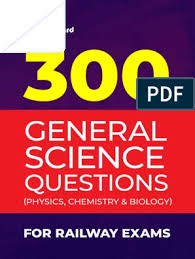Introduction: Sparking Scientific Curiosity
Throughout the general science questions for fascinating journey of middle school education, students embark on an exciting adventure to understand scientific principles. The natural world presents countless mysteries that encourage young minds to explore, question, and discover fundamental concepts. Moreover, developing a strong foundation in science during these formative years shapes critical thinking abilities for future endeavors.
The Building Blocks of Life: Biology Questions
Students often wonder about the microscopic world of cells that form the foundation of all living things. Furthermore, the complex relationship between cell organelles demonstrates how these tiny structures work together to sustain life. Additionally, the process of cellular respiration shows how cells convert nutrients into energy for essential biological functions.
Exploring Genetics and Heredity
Middle school students frequently encounter questions about how traits pass from one generation to the next through genetic material. The fascinating world of DNA reveals the blueprint that determines physical characteristics and inherited traits in organisms. Subsequently, understanding genetic variation helps explain the diversity of life forms we observe in nature today.
Ecosystems and Environmental Interactions
Young scientists need to grasp how different organisms interact within their environments to maintain nature’s delicate balance. Moreover, the flow of energy through food chains and food webs illustrates the interconnectedness of all living things. Additionally, human impact on ecosystems raises important questions about conservation and environmental responsibility for future generations.
Physical Sciences: Understanding Matter and Energy
Students often grapple with understanding how different states of matter behave under varying conditions and circumstances. Furthermore, the arrangement of atoms and molecules explains many observable properties of everyday materials we encounter. Additionally, chemical reactions demonstrate how substances combine or break apart to form new materials with different properties.
Forces and Motion
The principles of physics help explain how objects move and interact with one another in our physical world. Moreover, understanding Newton’s laws of motion provides insights into the forces that govern everyday movements and actions. Subsequently, concepts of friction, gravity, and momentum help explain various phenomena we observe in daily life.
Energy Transformations
Middle school students explore how energy changes from one form to another in various natural processes. Furthermore, the conservation of energy principle demonstrates that energy cannot be created or destroyed, only transformed. Additionally, understanding different forms of energy helps explain natural phenomena and technological applications in modern life.
Earth and Space Sciences: Our Place in the Universe
Students investigate the dynamic processes that shape our planet through geological and atmospheric interactions over time. Moreover, the water cycle demonstrates how Earth’s systems work together to distribute this essential resource globally. Additionally, plate tectonics explain the formation of mountains, earthquakes, and volcanic activity we observe on Earth.
Weather and Climate
Understanding weather patterns and climate systems helps students grasp the factors affecting our planet’s atmospheric conditions. Furthermore, the relationship between temperature, pressure, and precipitation explains various weather phenomena we experience throughout the year. Subsequently, climate change raises important questions about human influence on global weather patterns and future implications.
Space Exploration
Young minds often wonder about our place in the vast universe and the celestial bodies surrounding Earth. Moreover, understanding the solar system helps students appreciate the unique conditions that make life possible on Earth. Additionally, space exploration raises questions about potential life on other planets and future human missions.
Scientific Method and Investigation Skills
Students learn to develop testable hypotheses and design controlled experiments to investigate scientific questions systematically. Furthermore, understanding variables helps students create fair tests that produce reliable and valid results for analysis. Additionally, proper experimental design teaches students about the importance of scientific accuracy and precision.
Data Collection and Analysis
Middle school scientists must learn to collect accurate data and organize information in meaningful ways. Moreover, creating graphs and charts helps students visualize patterns and relationships in their experimental results. Subsequently, analyzing data teaches students to draw evidence-based conclusions from their scientific investigations and experiments.
Scientific Communication
Students develop skills in communicating their findings through clear, well-organized scientific reports and presentations. Furthermore, learning to support conclusions with evidence helps students develop strong scientific argumentation skills for future studies. Additionally, collaborative discussions encourage students to share ideas and learn from different perspectives in science.
Technology and Innovation in Science
Students explore how technological advances have enhanced our ability to study and understand scientific phenomena. Moreover, digital tools and instruments help students collect more accurate data and perform complex analyses. Additionally, computer simulations allow students to explore scenarios that might be impossible or dangerous in reality.
Science in Daily Life
Understanding scientific principles helps students make informed decisions about health, technology, and environmental issues. Furthermore, scientific literacy enables students to evaluate claims and make evidence-based choices in their daily lives. Additionally, applying scientific knowledge to real-world problems prepares students for future challenges and opportunities.
Conclusion:
The journey through middle school science lays a crucial foundation for future scientific exploration and discovery. Throughout this educational adventure, students develop critical thinking skills and scientific literacy that will serve them well. Additionally, fostering scientific curiosity during these formative years creates lifelong learners who question, explore, and innovate.
Most importantly, these fundamental questions and concepts prepare students for advanced scientific studies in high school. Furthermore, understanding these core principles helps students appreciate the role of science in addressing global challenges. Finally, nurturing scientific thinking in middle school students creates informed citizens who can contribute to society’s progress.
